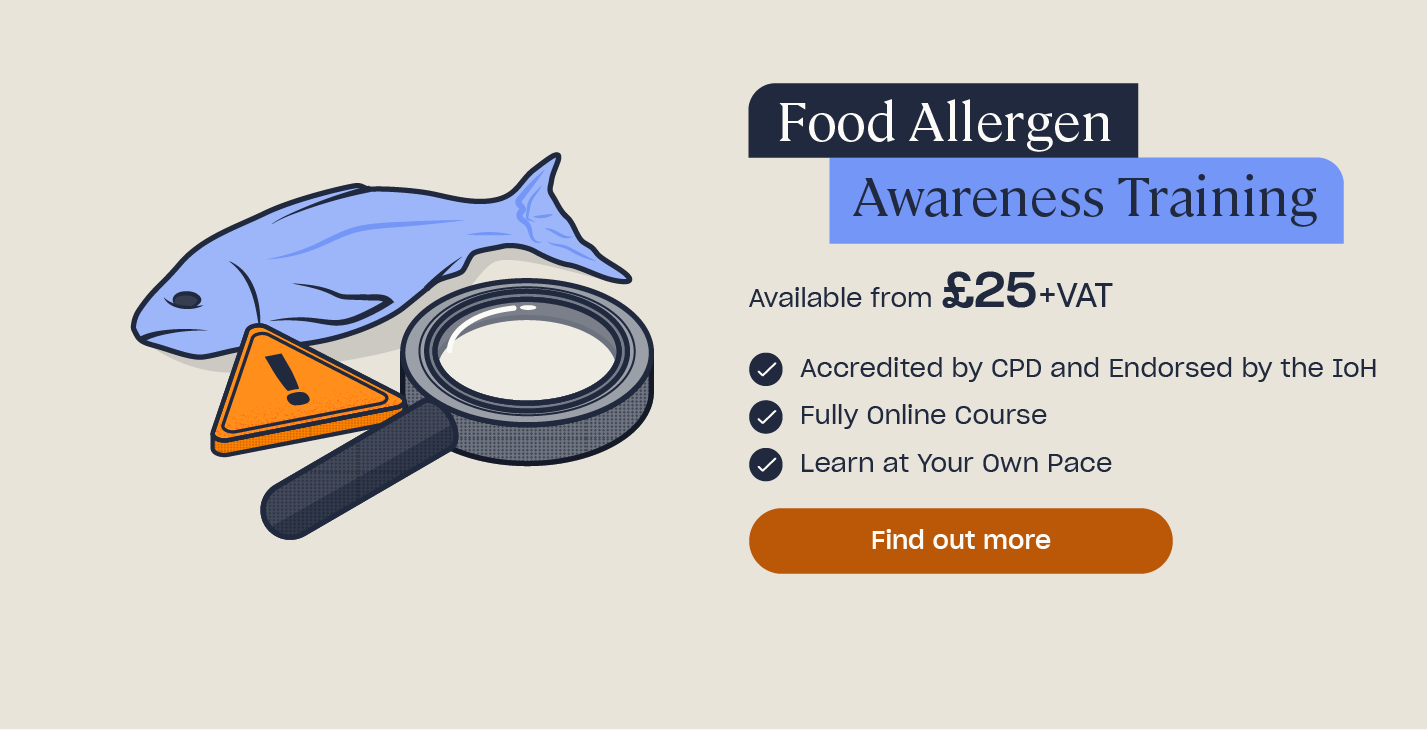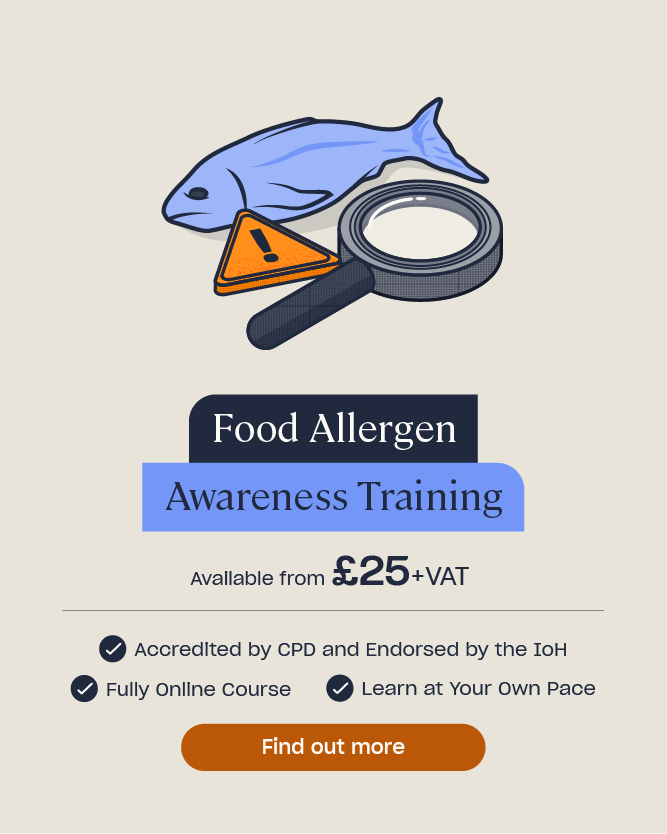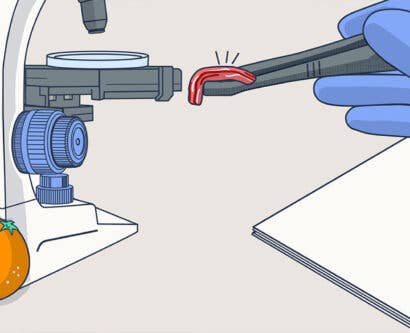The Importance of Near Miss Reporting in Hospitality
With an estimated 2 million people living with a diagnosed food allergy in the UK, serious incidents can occur in the hospitality industry. In some cases, even trace amounts of the allergenic ingredient can cause a serious allergic reaction. This is why near miss reporting is vital for the hospitality industry and for the safety of its customers.
In this article, we will outline what is meant by near miss reporting and why it is so important in hospitality. We will also cover how to effectively manage near miss reporting in your hospitality business so that it becomes a valuable preventative measure.

What is Near Miss Reporting in Hospitality?
Of the two million people diagnosed with a food allergy in the UK, one in six of these people experience such severe symptoms that they require medical help. This makes managing their food allergies when eating out of paramount importance, and they will need to be reassured that measures are in place to reduce the risk of any harm coming to them.
In the hospitality industry, a near miss refers to a food safety related incident which didn’t cause harm on a particular occasion but had the potential to do so. For example, a customer may suffer a mild allergic reaction after consuming a product which contained an ingredient they weren’t aware of. This would be considered a near miss as no serious harm was caused on that occasion.
It is important to record any near miss incidents because it highlights where there is room for improvement in your current allergen processes. You can then take appropriate action as the situation could have been much more serious had the customer experienced a severe allergic reaction.
Food Hypersensitivities
It is not only important to report near misses which link to allergic reactions to food, but also to consider near misses linked to wider food hypersensitivities. The term ‘food hypersensitivity’ is an umbrella term which encompasses food allergies, intolerances and coeliac disease.
A food intolerance is having difficulty digesting certain foods, resulting in an adverse physical reaction to them if they are eaten. As such, a food intolerance affects the digestive system, and the symptoms that occur – typically bloating or stomach pain – usually present themselves within a few hours of eating the food. While the symptoms are unpleasant, food intolerances are not life-threatening.
Coeliac disease is a serious autoimmune disease which causes the body to react to gluten in an adverse way. Over time, damage is caused to the small intestine causing symptoms such as fatigue, weight loss and even nerve damage. There are 600,000 people living with coeliac disease in the UK and even trace amounts of gluten can cause serious effects. For more information, check out our article: How to Identify which Foods Contain Gluten.

Having a near-miss reporting system in place is a valuable step in ensuring you have adequate procedures in place to avoid cross-contamination. The feedback you can gain from near miss reporting is incredibly useful and should be seen as a way to help improve the experience and the safety of all food hypersensitive customers in your workplace.
For more information on food hypersensitivities, take a look at our article here.
Why is Near Miss Reporting Important?
Near miss reporting is crucial in order to protect customers with food hypersensitivities from harm. Customers should be able to feel confident that the food products they consume are safe for them to do so, whether that is a food product they buy in the supermarket, a meal in a restaurant or a dish from a takeaway.
The process of food production from farm to fork has many steps, and therefore, there are many opportunities for mistakes to happen. This is why information regarding product ingredients needs to be clearly tracked and communicated along every step of the journey. Near miss reporting is helpful in doing this effectively.
Caroline Benjamin at Food Allergy Aware offers a comprehensive auditing programme with the aim of supporting businesses providing for the customers who have special dietary requirements. She said: “Near miss reporting reflects best practice and shows a real commitment by the businesses to ensure safe practices are followed to continuously improve allergen management procedures and prevent a fatality from occurring”
The 14 Food Allergens
Any food has the ability to cause an allergic reaction; however, certain foods are more likely to cause a reaction than others.
There are 14 food allergens that legally must be declared if they are used as an ingredient in a food product.
These are:
- Celery.
- Cereals containing gluten.
- Crustaceans.
- Eggs.
- Fish.
- Lupin.
- Molluscs.
- Milk.
- Mustard.
- Nuts.
- Peanuts.
- Sesame.
- Soya.
- Sulphur dioxide and sulphites.

Food businesses have a duty to be aware of these 14 food allergens and where they appear in their ingredients and recipes. This way, accurate information can be shared with food hypersensitive customers. In the event that a customer does come into contact with an ingredient which causes them harm, a near miss report should be filed and relevant action can be taken to reduce the chance of this happening again.
To help you remember the 14 named allergens, we have a free downloadable poster which you can display in your workplace.
Need a Course?
Our Food Allergen Awareness course covers all aspects of providing a safe experience for food hypersensitive customers.
Natasha’s Law
In 2016, 15-year-old Natasha Ednan-Laperouse experienced a fatal allergic reaction to a baguette she had bought from Pret a Manger. The baguette contained sesame – however, due to the lack of allergen information on the packaging, she was not made aware of this.
An inquest into her death found that there had been six other cases of allergic reactions at Pret a Manger in the previous year; however, no action was taken to address this. This is a devastating example that shows just how crucial it is to have a near miss reporting system in place. Had the business been made aware of the issues and carefully recorded them, steps could have been taken to mitigate the risk and Natasha’s death may have been avoided.
Following a successful campaign led by members of Natasha’s family, Natasha’s Law came into effect in 2021. The law requires all businesses to include full ingredient lists on food pre-packed for direct sale (PPDS), such as the baguette she consumed that day.
For more information on what Natasha’s Law means for your business, take a look at our article here.
How to Manage Near Miss Reporting in Hospitality
You should take time to create an effective process for near miss reporting. It is important that all staff are aware of the process, that they understand how near miss reporting works and are encouraged to actively engage with it. You should consider the following points when managing near miss reporting in your business setting.
Proactively respond to customer concerns
It is important to encourage all customers and staff within the business to be proactive when it comes to near miss reporting. Working together will allow the capture of more incidents which we can learn from.
If a customer reports a near miss, you should consider your response carefully. Be aware that a customer may be frustrated or even angry when they report the incident to you. It is your responsibility to reassure the customer that there is a procedure in place within your business to deal with near misses, the incident will be fully investigated and steps will be taken to ensure this doesn’t happen again.
This will show that you empathise with the customer and that you understand the importance of providing a safer dining experience for them and other food hypersensitive customers.

Have a clear reporting system in place
A clear and accurate description of the near miss should be recorded, alongside the time and date of the incident. This information must be stored carefully and you should be able to access it with ease in the future.
Following this, it is vital that a thorough analysis of the incident is completed so that the root cause can be found. You will then be able to put actions into place which will reduce the likelihood of the incident happening again in the future. By understanding the causes of the near miss incident, you can make recommendations and improvements to avoid other serious incidents in the future.
Food safety management
In order for any food business to be successful, there needs to be an effective food safety management system in place. A food safety management system enables you to comply with food hygiene laws and ensure that the food you handle is safe for your customers to eat.
HACCP (Hazard Analysis and Critical Control Point) is a food safety management system that helps businesses identify, evaluate and control the hazards that pose a significant risk to food safety. The HACCP evaluation will inform where there are risks of allergenic cross-contamination so that the business can implement an allergen policy and procedures for staff to follow in the workplace.
HACCP is a system based on seven key principles. These are:
- Conduct a hazard analysis.
- Determine the critical control points (CCPs).
- Establish critical limits.
- Monitor the CCPs.
- Establish corrective actions if a CCP is out of control.
- Establish verification procedures.
- Keep accurate documentation and records of each stage.
Near miss reporting should form part of your HACCP process and will allow you to identify hazards linked to food allergens much more effectively. As you go through your day to day tasks, try to keep an eye out for any new potential hazards and report them to the appropriate person, or make a note of them yourself.
To learn more, check out our article: What are the 7 Steps of HACCP?
Allergen risk assessments
Your workplace should also conduct a food allergen risk assessment. Following the steps to identify the hazards and how to reduce the risk is likely to reduce the number of near misses your business encounters, as you will already have taken steps to ensure that the food you serve is free from allergenic cross-contamination. It can also be helpful to identify where you record allergen information, such as in an allergen information sheet so that all information relating to food ingredients and allergens can be clearly communicated to the customer when needed.
Reporting near misses provides an opportunity to reassess the chain of food production and identify any issues. It may be that cross-contamination has occurred before a food item reaches your establishment, and without thorough investigation and root cause analysis, this would never have been known. The more potential hazards are investigated, the lower the risk will be in the future.
You can download our free food allergen risk assessment and checklist templates through our article here.
Allergen policy
Your workplace should use HACCP and an allergen risk assessment to create an allergen policy. This must be accessible to all staff and should be regularly monitored and kept up-to-date.
Food Allergy Aware and Jacs Allergen Management began a campaign in 2022 highlighting the importance of reporting near misses as part of best practices in the hospitality industry. You should have a near miss reporting system in place as part of your allergen policy in order to show due diligence and to demonstrate that you take catering for food-hypersensitive customers seriously.
Whatever your role, you must ensure that you have read and understood the allergen policy, and be sure to ask for support from senior team members or experts if you need to.
Staff training
It is also important that all staff are fully trained and aware of the procedure for reporting near misses. As we mentioned previously, working together as a business with both staff and customers will allow you to have the best possible outcomes from near miss reporting. Those in management roles must ensure that training is put in place and keep a record of who has completed the training and when. If you are attending training which has been provided you should engage proactively and ask questions if you feel you need further clarification on anything.
Alongside this, it is best practice to ensure all staff are trained in how to speak with food hypersensitive customers so that you can be confident in what to say and how to say it.
For more information regarding the importance of effective communication in hospitality, take a look at our article here.
Near miss reporting doesn’t need to be something which becomes a difficult or time-consuming task. Instead, you should see it as an opportunity to demonstrate best practice and to show that you are willing and able to provide an inclusive and safe experience for all customers, especially for those with food hypersensitivities. Having effective measures in place to prevent incidents will allow you to feel confident and proud of the service you provide.
Further Resources:
- Food Allergen Awareness Training
- Food Allergen Risk Assessment & Checklist: Free Templates
- What Does Natasha’s Law Mean for My Business?
- Food Allergy Chart Template for Hospitality











